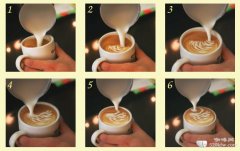Starbucks coffee must be expensive in China or it is dumping.
This joke reflects the number of Starbucks coffee shops in the United States. It is said that when Starbucks are at their peak, their number is comparable to the speed limit signs on American highways. That is to say, if you look up on any street in the United States, you will see a Starbucks. Starbucks 'green goddess logo has become another symbol of America, a totem, after McDonald's bright yellow big M.
With Starbucks entering China on a large scale, sensitive Chinese people have found that Starbucks, a coffee chain that cannot be further rustic in the United States, has become a coffee aristocrat on Chinese soil. Chinese consumers have complained: "Why?" If an American earns $2,000 a month, he spends $3.45 on a Starbucks. A Chinese person who earns $2,000 spends $24 to $30 on a Starbucks. The Americans are too bullying."

Western economics states:
Starbucks coffee must be expensive in China
Is Starbucks really deliberately raising brand positioning in order to obtain high profits, catering to face-loving Chinese with high prices, and seeking huge profits at the expense of Chinese consumers?
Fayed, an economics professor at the University of California, Davis, believes Starbucks 'pricing in China follows an important principle in economics: The Law of One Price. In other words, in the context of globalization, the same commodity should be expressed as having the same value when sold in different regions. Simply put, if the sales price of a Starbucks cup in the United States is 3.45 US dollars, then its Chinese price should be 3.45 US dollars multiplied by the exchange rate of 6.9 US dollars and RMB when Starbucks officially entered the Chinese market in 2010, which is 23.8 yuan, which is about 24 yuan. If Starbucks prices its product below this price, it should be considered dumping. In Professor Fayed's eyes, Starbucks 'pricing of its products in the Chinese market is reasonable and legal. Such pricing, which makes room for profits for Chinese coffee shops and drinks, is a logical product of Western economics 'theory of free competition.
In fact, the law of one valence in Western economics is equivalent to Newton's law of universal gravitation in physics, and it is a law that everyone on earth knows. Unfortunately, Chinese economics has long been out of touch with Western economics research. Once there is an incomprehensible phenomenon, Chinese consumers will easily think that this is US imperialism exploiting the Chinese people economically, thus accusing US companies of profiteering.
Big Mac Index
Not applicable in China
If we look at the extension of the law of one price, we will have different perspectives and conclusions on many economic disputes between China and the United States.
According to the law of one price and purchasing power parity (Purchasing Power Parity), in 1986, The Economist magazine first used a concept called "Big Mac burger index". The index uses McDonald's Big Macs sold in different countries as an important economic indicator to determine whether currency exchange rates are at the right level.
Of course, this index has also become the theoretical basis for the United States to accuse China of unreasonable RMB exchange rate. According to the Big Mac Index, economists in the United States were surprised to find that a Big Mac in July 2013 sold for $4.56 in the United States, and at an exchange rate of 6.3, it should have sold for 28.7 yuan in China, or about 29 yuan. The actual price of a Big Mac burger in China is only 17 yuan. Based on this price, the exchange rate between the dollar and the yuan should be set at 1: 3.5 instead of 1: 6.3.
The Chinese feel even more wronged. This 17 yuan is not given by me, but by your American company. Why do you complain that my exchange rate is too low with your own price? If I don't know the law of one price or the law of purchasing power is my fault, then your American company clearly knows these economic principles, but also gives a 17 yuan, this is not playing with me?
So, back to the Big Mac Index, there is another important economic basis. This index is based on the principle of free competition. The so-called principle of free competition means that in a specific industry, the competitive strength of each enterprise is balanced and mutually restricted, and there is no possibility of monopoly.
The American fast food industry in which McDonald's is located is a veritable free competition industry. McDonald's in the United States shares the American fast food market with Burger King, Jack in the Box, Little Keller and other fast food chain brands. There is no unique fast food monopoly enterprise. In a free competitive market, firm pricing is determined entirely by profits. If prices are set too high, consumers will leave in droves to consume competitors 'products, and the company will have to close down; if prices are set too low, the company will lose profits, and of course it will eventually be defeated by other competitors. Under such a premise, this "Big Mac Index" has become a "law of everything" and has become one of the most important theoretical bases for the US accusation of China's interest rate problem.
But is China's fast food market really a free and competitive market? Of course not. McDonald's may be challenged by other foreign fast food brands in Beijing or Shanghai, but other brands are far less competitive. In other cities, consumers can only eat hamburgers at McDonald's or KFC. McDonald's hamburger sales in China is a monopoly, a monopoly. McDonald's is a Price taker in hamburger sales in the United States, and it is definitely a price maker in hamburger sales in China. If it sells for 17 yuan in the United States, or $2.7, it will die quickly, but it will still make money in China, not to mention selling for 17 yuan, even if it sells for 15 yuan.
But not many American economists noticed this, just as not many Chinese economists talked about the law of one price. In this mutual disregard, the 17-yuan Big Mac not only became a powerful weapon to suppress other Chinese hamburger sellers, but also became a weather vane and flag for the United States to accuse China of currency problems.
Economics is just relativity.
At this point, we suddenly find that in this case, it seems that no one is wrong, but no one is right. It was like jumping from Newton's law of gravity to Einstein's theory of relativity.
According to Western economic theory, Starbucks certainly does not have huge profits; for McDonald's, the price of 17 yuan is certainly profitable. And let's imagine, if Big Mac really sells for 29 yuan, which Chinese can still afford its hamburger? Chinese consumers aren't losing out at this price; since the theoretical basis for the Big Mac index has collapsed, China's interest rate problem is questionable, meaning that the Chinese government is not wrong; and America's criticism of China is not groundless.
Here we can see that economics is the least science-like science. American economists often joke that economists are hindsight experts. Once the economic crisis occurs, economists often put the rescue on their lips, but who dares to say that a certain decree will immediately save the market successfully. In economics, there is no law of gravity, only relativity.
Important Notice :
前街咖啡 FrontStreet Coffee has moved to new addredd:
FrontStreet Coffee Address: 315,Donghua East Road,GuangZhou
Tel:020 38364473
- Prev

The method of Swan Coffee drawing
1. Place the milk pot close to the edge of the coffee cup and slowly pour in the mixture until 70% of the coffee cup; 2. Pour in the milk (reduce the tilt of the milk pot) and shake the milk pot to make a circle; 3. Move the milk kettle to the back and make a figure similar to the conch; 4. Slowly move the teapot to the front to draw out the body of the swan; 5. Pour the milk down and move the kettle to draw a curve to
- Next

Whirlpool latte pull Coffee Scrollwork Latte
Materials: espresso 1oz, fresh milk, sugar 1 packet production: 1, beat the milk foam and pour into the cup at a uniform speed about 10cm from the coffee cup to 90% full 2, use a spoon to hold the milk bubble and pour it on one side of the coffee surface in a semicircle 3, draw a circle on the surface with a bamboo stick, spread out from the center to draw a spiral pattern, so that the coffee and the milk bubble blend with each other in a whirlpool
Related
- What documents do you need to go through to open a coffee shop? coffee shop coffee shop certificate processing process
- How to purchase Coffee beans in small Cafe how to choose a suitable supplier for domestic Coffee supply Company
- How to drink Starbucks Fragrance White Coffee? how to make Australian White Coffee? what Italian coffee beans are recommended?
- The Story of Flora Coffee: the name of Flora Coffee Bean and the implication of the Flowers on Florna Coffee
- How much does a cup of coffee cost? How much is the profit of a cup of coffee? What is the profit of the coffee shop in a year?
- Yunnan small Coffee, known as "fragrant Coffee", introduces the characteristics of Alpine Arabica Coffee producing areas in Yunnan, China
- 2023 latest Starbucks full menu price list how much is a cup of Starbucks coffee what is better to drink the most popular hot and cold drinks recommended
- Starbucks different kinds of Coffee Price list Starbucks menu 2023 Top Ten Best drinks in Starbucks
- Starbucks Spring praise Comprehensive matching Coffee Bean theme Story Packaging implication and taste description
- The cost of a cup of coffee latte American coffee cost price and selling price

